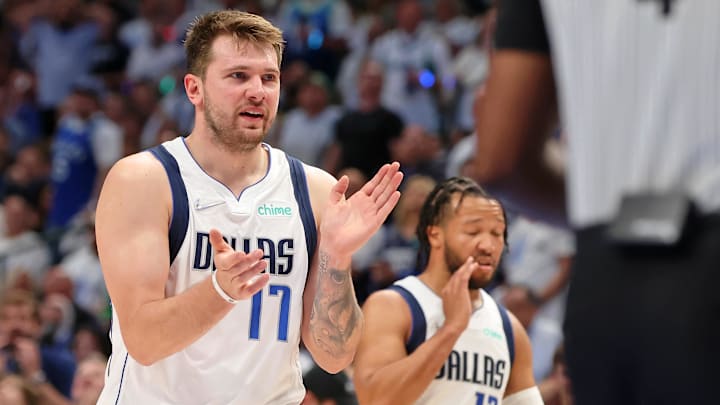The NBA offseason is in full swing, with rumors swirling constantly. The news that Kevin Durant requested a trade from the Brooklyn Nets sent Twitter into a frenzy with speculations, fake reports, and fan-suggested transactions galore. As Dallas Mavericks fans, we are all starved for rumors, hoping the front office will make a move. This need for news makes us all ripe to fall for fake stories. However, there are ways to avoid falling for parody accounts and trolls.
Twitter has become the hub of the sports information world. Most breaking news gets reported on Twitter first, becoming the de facto social media platform for instant sports news. Instant reactions and interactions make Twitter a breeding ground for spreading false rumors. By using the following suggestions, one can avoid falling for fake reports.
A simple suggestion is to check that it is a verified Twitter account. It seems obvious, but you might be surprised how many people fall for fake Adrian Wojnarowski or Shams Charania tweets and fail to look for the blue checkmark. Sometimes false accounts will try to make it look like they are verified, but a second glance can help one avoid falling for a parody account.
Dallas Mavericks fan's guide to spotting fake rumors
Following up on the idea of Twitter verification, it is also good to read the account's bio. Many parody accounts will expressly state that they are a parody or will have no bio at all. Sometimes, though, the bio page will read exactly like the real deal, so that is when one should use other methods of determining legitimacy.
Create or find a list of reputable sources to follow. For instance, Adrian Wojnarowski, Shams Charania, Marc Stein, and Jake Fischer are often the go-to names for NBA rumors in the basketball world. However, every team has reporters dedicated to their team. For instance, Brad Townsend and Callie Caplan are good to follow for Dallas Mavericks' news and rumors. Twitter Lists and notifications are an excellent way to get reliable reporting quickly.
A third way to limit falling for false reporting is to look at the number of followers. The number of Twitter followers is not a great way in and of itself. However, if there is a question between two accounts that look almost identical, the account with the most followers is often the legitimate one. Far more often than not, the legitimate account will have a large following due to a track record of reliability.
An essential item that is easy to overlook is a link or a source for the rumor. Not all good rumors will have links or named references or sources. Such as reputable reporters for the likes of ESPN, The Athletic, or Bleacher Report will often refer to "sources." But less well-known accounts need more evidence. It is easy to claim to be a team insider on Twitter but more challenging to prove. If you are suspicious of an account, ask for more evidence.
Lastly, does the rumor even make sense? This one might take a little extra digging, but the Mavericks cannot add any free agents at this time without a sign and trade. I'm looking at you, Colin Sexton rumors. Do the pieces in the trade rumor seem remotely plausible? The Nets will not trade Kevin Durant to the Mavs for Tim Hardaway Jr., Dwight Powell, and Davis Bertans, no matter how much MFFLs would love it.
These suggestions are hardly a complete list of ways to tell if one is getting good, solid, reliable information from Twitter. They should be a good starting point in avoiding falling for false rumors posted by trolls and parody accounts. As the offseason drags on and we become more starved for Mavs news, it is essential to be diligent when reading tweets and not pass on false rumors.
